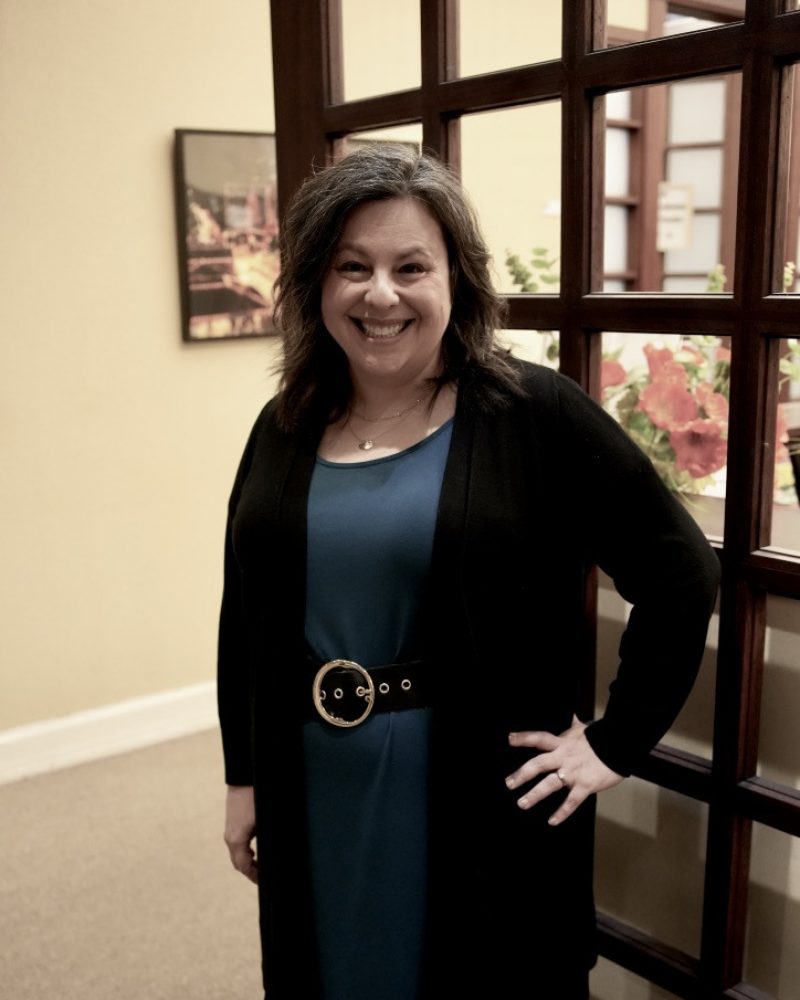The Difference Between Politics and People

If there was one thing I could let the world know, it would be that there’s politics, and then there’s people. And refugees are people.
My name is Hilary Cohen Singer. I’ve been with JVS (Jewish Vocational Services) for almost 14 years, and I currently serve as the Executive Director. My degree is in Political Science, and I have always been interested in world affairs. What brought me here to JVS is the opportunity to work with people from all over the world and help them integrate into our communities and build bridges across cultures & experiences. That’s what refugee resettlement does at it’s best.
One of my favorite experiences within the program was with two young men in high school. One was a Congolese Christian (his father was a pastor) who had come from the Democratic Republic of Congo, and the other was a Sudanese Muslim from Sudan.
They gravitated towards each other and became the best of friends. They came into JVS to do some volunteer hours. They were so dynamic and so excited about the opportunities available to them, that they went on a little speaking tour together with staff from JVS. They went around to churches and synagogues and groups and spoke about their experiences resettling, becoming friends, and building bridges.
Fast forward to today–the Congolese young man graduated from high school, went to college, was the student body president his senior year, and got his first job out of college at Kansas City Public Schools, providing support for other kids.
He is now in D.C. going to law school to practice international law, is married and just had a baby. The other young man also graduated from high school, works at JVS and is in graduate school for nonprofit management. So even though this work is challenging, you see each individual’s amazing potential and the benefits for our community.
At JVS we call ourselves a refugee and immigrant services organization. Our services are for anyone who comes to the United States and needs support to make a good life for themselves here.
A big part of our work is with the US refugee admissions program. We provide a lot of initial services, and then other supportive services for as long as someone needs. Our services are divided into three general categories:
1. Community integration work, which supports basic needs like housing, school enrollment, and health care.
2. Health and wellness work, which addresses physical, mental, and relational health.
3. Workforce development, where we help with initial employment and then offer support in developing career pathways.
Since we don’t have any control or prior knowledge of who and when anyone will come in our door, part of our strategy has been to see what things we can put into place to serve folks who are already here in our community.
One of the things we’ve been able to do in the last few years is substantially build out our youth team. We’ve built a strong partnership with the local public schools, have had a girls group at the high school, and recently started a boys group as well. These groups give the foreign-born students a space to connect with each other and find support. They support each other in their goals to learn the language and culture, their goal to graduate, etc.
The biggest challenge we face in refugee resettlement is housing. And it’s not just a problem for refugees, it’s a problem for our community as a whole. Because we are renting and furnishing hundreds of properties a year for the folks we have moving here, we are in a unique position to be able to speak to that and be heard, maybe more than an individual. So we are beginning to participate in advocacy for equal housing rights in Kansas City.
Refugee resettlement is a humanitarian relief program, but it has gotten so politicized and controversial. There are new rules and regulations and immigration statuses, and eligibility for things depends on an immigrant’s status and where they came from, so the operation of the program has gotten really, really complex. It is hard work, with a lot of secondary trauma and a lot of bad days.
But what fuels me and brings me joy is that even when it's hard and even when it's messy, it's always hopeful.
It’s always looking towards the vision of a better life for an individual. A better community. A better world.
If there was one thing I could let the world know, it would be that there’s politics, and then there’s people. And refugees are people. They’re just trying to find safety and do what they think is best for themselves and their kids. We all want to be able to make decisions about our lives, shape our own destinies and then work to fulfill them. I think at the end of the day, that’s what drives people to seek solace in the refugee program, and it’s what drives people to be a part of the community of support.
Our team members obtain informed consent from each individual before an interview takes place. Individuals dictate where their stories may be shared and what personal information they wish to keep private. In situations where the individual is at risk and/or wishes to remain anonymous, alias names are used and other identifying information is removed from interviews immediately after they are received by TSOS. We have also committed not to use refugee images or stories for fundraising purposes without explicit permission. Our top priority is to protect and honor the wishes of our interview subjects.